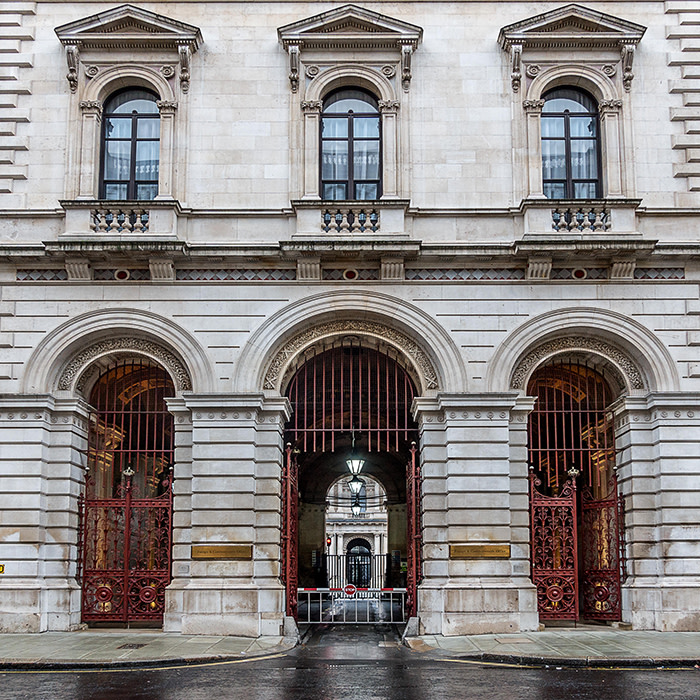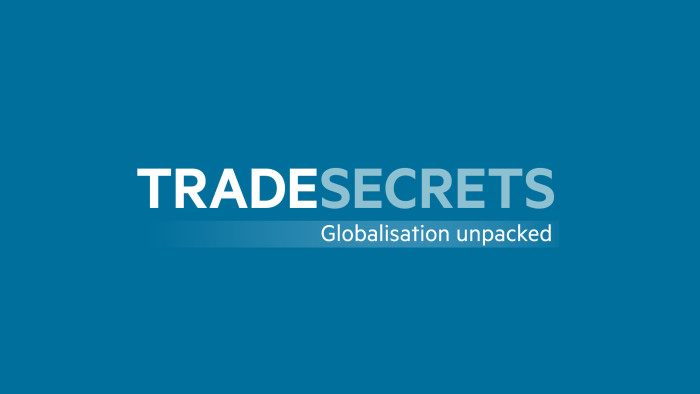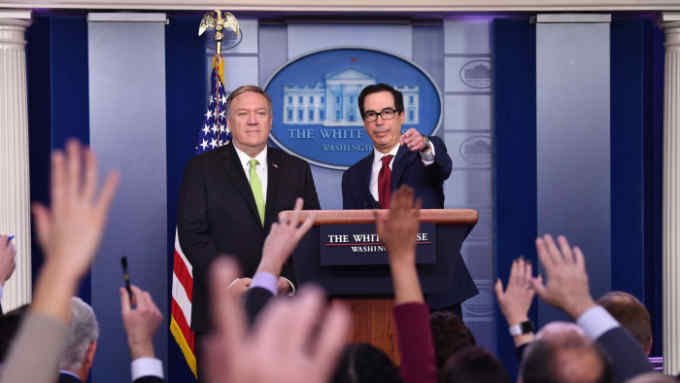British businesses face disruption if London diverges from EU sanctions

Roula Khalaf, Editor of the FT, selects her favourite stories in this weekly newsletter.
Companies operating in Europe face a headache as the UK prepares to diverge from the European Union’s sanctions regime, making it even more complex to avoid doing business with blacklisted people, businesses and countries.
A framework of EU restrictions against countries from Venezuela to Russia, designed to support goals such as defending human rights and fighting terrorism, is initially set to be largely mimicked by the UK following the end of the Brexit transition period, scheduled for the end of this year.
But foreign secretary Dominic Raab is expected to outline a new British sanctions regime in February, targeted at individuals deemed responsible for human rights abuses. This is to be followed by the publication of a list of people whose assets in the UK are to be frozen.
And compliance lawyers see signs that the UK will eventually gravitate closer to the US stance on sanctions. Meanwhile, the EU, shorn of a UK that has been the driving force behind much of the bloc’s sanctions regulations, could start to soften its approach.
“I see the UK drifting to more of a mid-Atlantic position,” says Sunny Mann, who co-leads law firm Baker McKenzie’s UK compliance and investigations practice. He adds: “I can see the EU drifting below the current benchmark if the UK is not at the table pushing for tougher sanctions.”
Britain’s plan on sanctions — measures that can range from arms embargoes and travel bans on specific individuals to limits on trade and the use of some financial instruments — comes as the country seeks to forge a new foreign policy following its departure from the EU.

The new policy is intended to counter fears that concern for human rights might fall by the wayside in a post-Brexit Britain more concerned about courting new business and trade opportunities.
While Boris Johnson, prime minister, has promised that a new “global Britain” will be “generous in temper and engaged with the world”, the challenges of putting its new policy into practice have become apparent in the past month. The issue of sanctions has come into sharp focus following the US’s decision in January to impose further sanctions against Iran after assassinating Iranian military commander Qassem Soleimani.
The UK, France and Germany have been trying to keep alive a 2015 deal designed to restrict Iran’s nuclear programme after the US pulled out of it in 2018. Yet this month the European trio triggered a dispute mechanism in the deal after Tehran abandoned its uranium enrichment limits. That pushes the 2015 deal closer to collapse and could mean the reimposition of UN sanctions against Iran, although the UK’s position could end up being markedly different to the EU’s.
“One area where you could see political divergence is what to do with Iran,” says Baker McKenzie’s Mr Mann. While the UK has so far aligned itself with France and Germany, British prime minister Boris Johnson has called for a new US “Trump deal” with Iran, suggesting a move towards the US’s position — although the UK insists that does not contradict the goal of saving the 2015 agreement.
The UK is also expected to slap travel bans and asset freezes on Russians responsible for human rights abuses, similar to steps taken in the US following the 2012 “Magnitsky act” — named after a whistleblowing Russian lawyer beaten to death in a Moscow jail in 2009 after uncovering a $230m fraud by tax officials.
Currently, the UK sanctions policy is largely determined by the EU. Some of these sanctions are mandatory, arising from membership of the UN. Others, however, are set by the EU itself. “It’s one of the areas where the UK is exercising its sovereignty resulting from Brexit,” says Richard Eccles, partner at law firm Bird & Bird. While this will be subject to any future trade deals struck with the EU, “you get the impression it’s the government’s intention not to give that [sovereignty] up”.
Trade Secrets

Trade Secrets is the FT’s must-read daily briefing on the changing face of international trade and globalisation.
Sign up here to understand which countries, companies and technologies are shaping the new global economy
The 2018 Sanctions and Anti-Money Laundering Act means London already has the legal powers to make its own sanctions regulations. But navigating post-Brexit sanctions is likely to be tough because the regulations tend to be a grey area, leaving plenty of room for companies to trip up.
The emergence of a UK sanctions regime, differing from that of the EU and US, could mean extra cost and complexity for business already facing many Brexit-related challenges including the planned departure from the EU single market.
A company dealing now with Iran, for instance, might need to obtain legal advice about EU and US sanctions. “Going forward you’re going to have to get EU advice and US advice and UK advice,” depending on the circumstances, says Philip Roche, partner at law firm Norton Rose Fulbright.
One example, which illustrates just how complex the rules could become, is EU sanctions on Russian banks. These institutions’ EU-based subsidiaries currently enjoy an exemption from the sanctions as long as any credit provided to them is not then used to fund the Russian-based parent. Although the UK has lined up legislation to mirror EU rules, EU businesses and individuals could potentially be prohibited from certain dealings with London-based subsidiaries if, as a result of Brexit, Britain is no longer covered by EU exemptions.
Ross Denton, partner at Baker McKenzie, points out that the UK cannot fix this kind of conundrum unilaterally. “It can be very difficult to work out if any particular transaction is on the right or wrong side of what is permissible,” says Mr Roche. “Ultimately a court will say ‘well it means this’ even if the regulation does not precisely say so.”

Comments